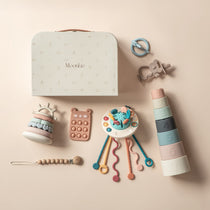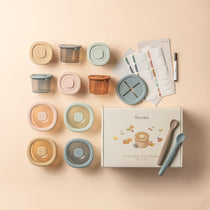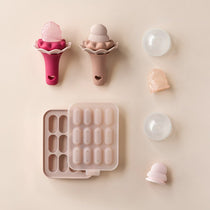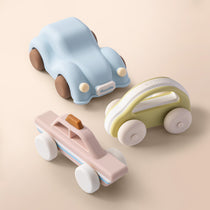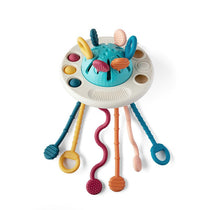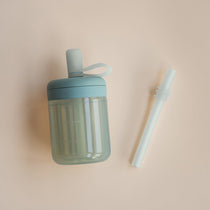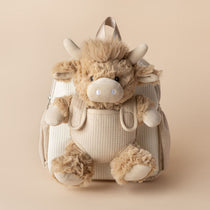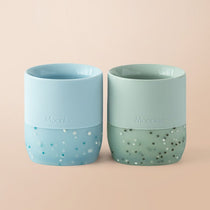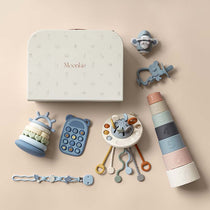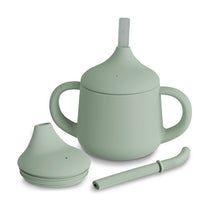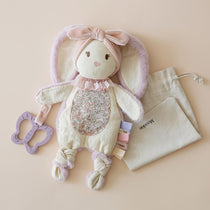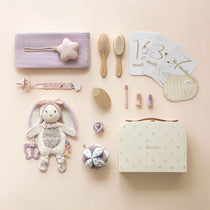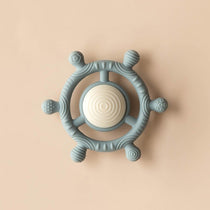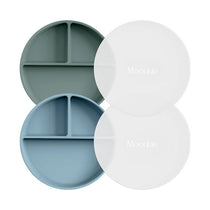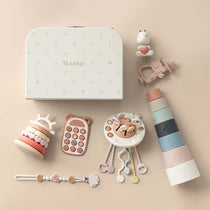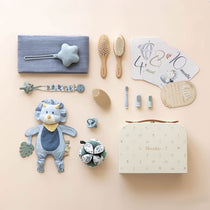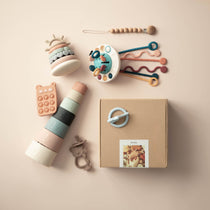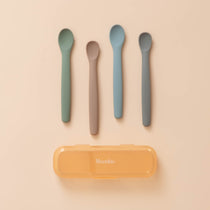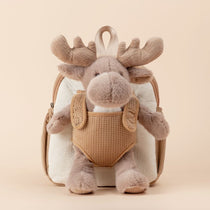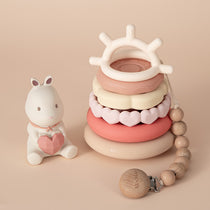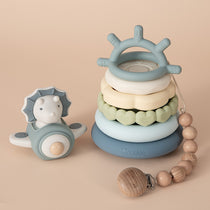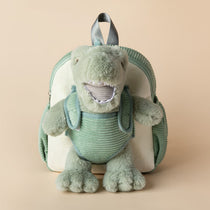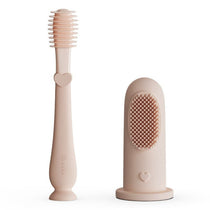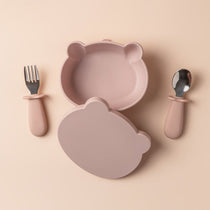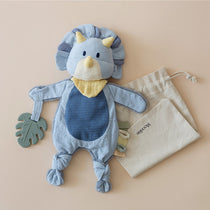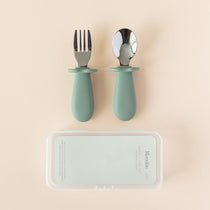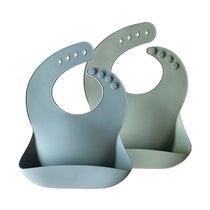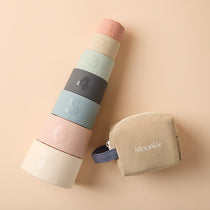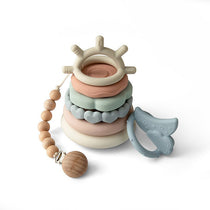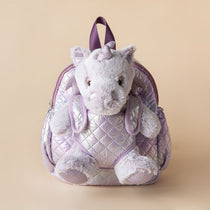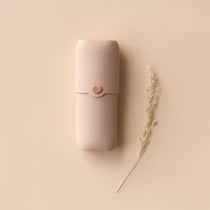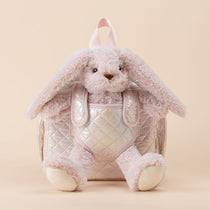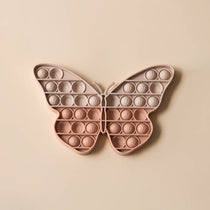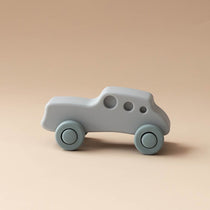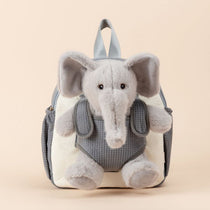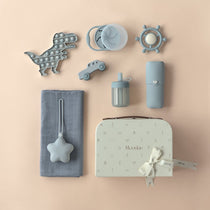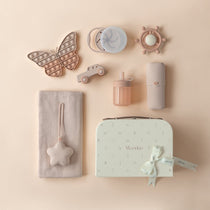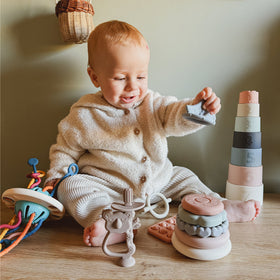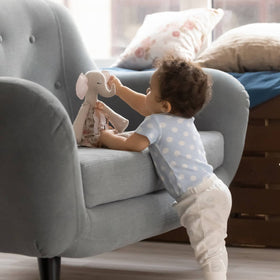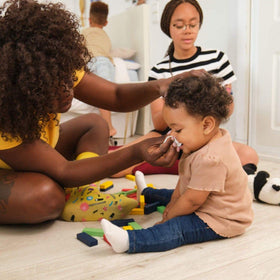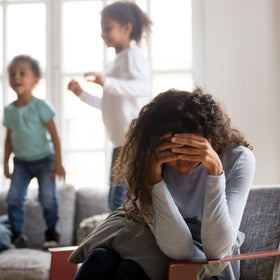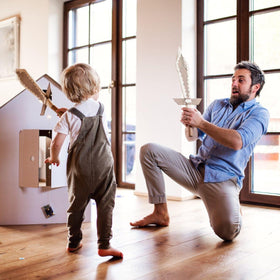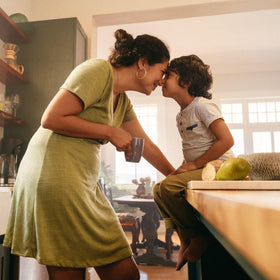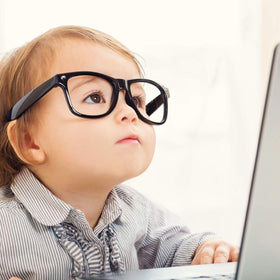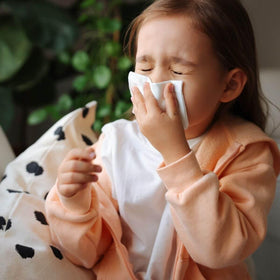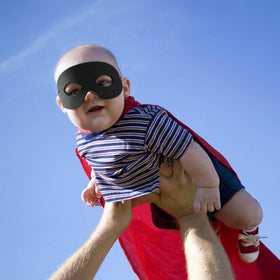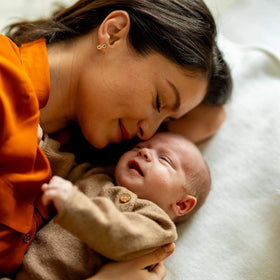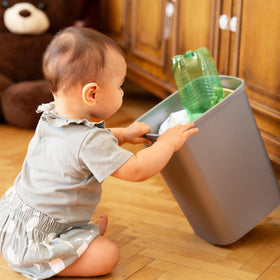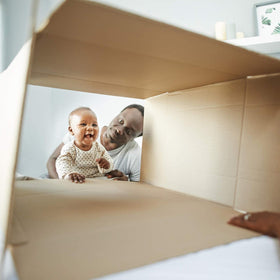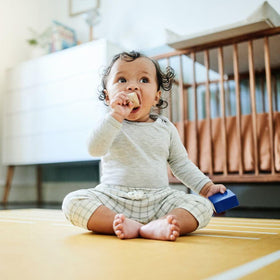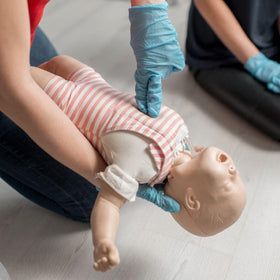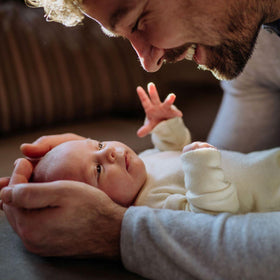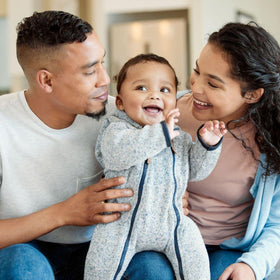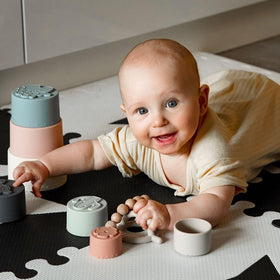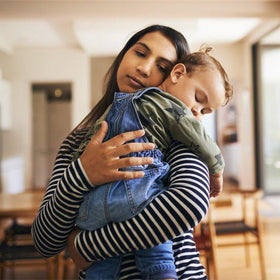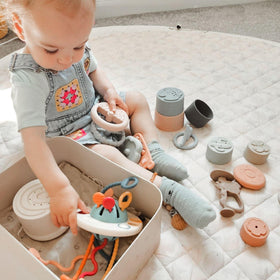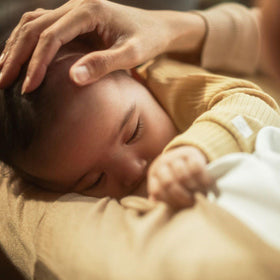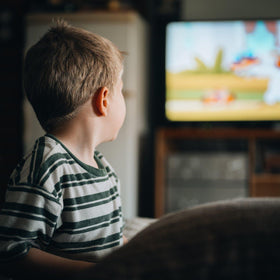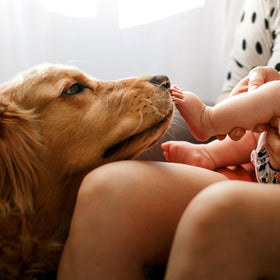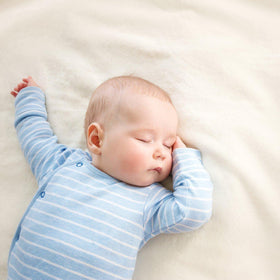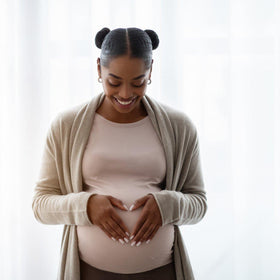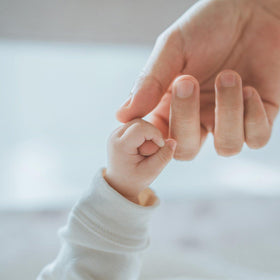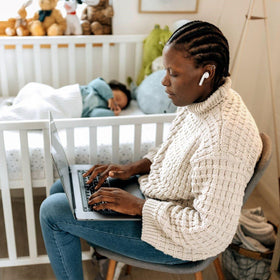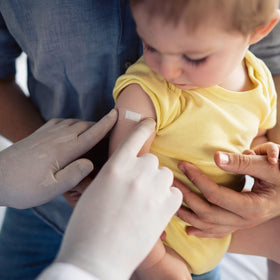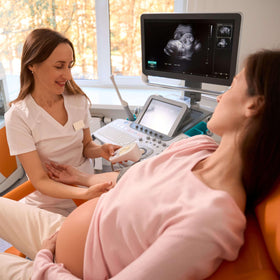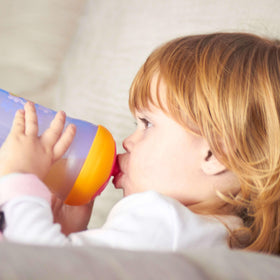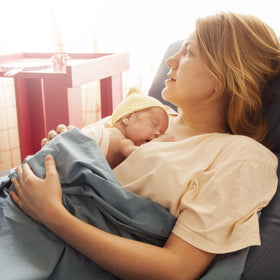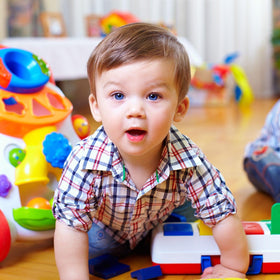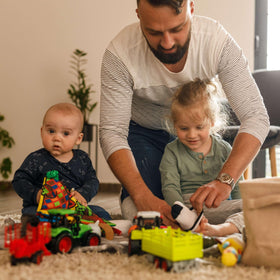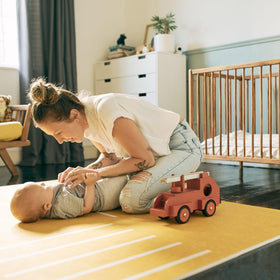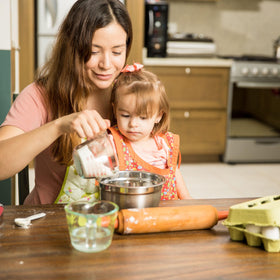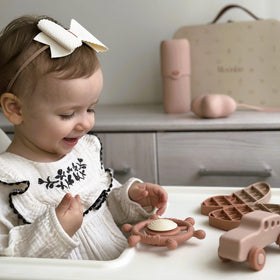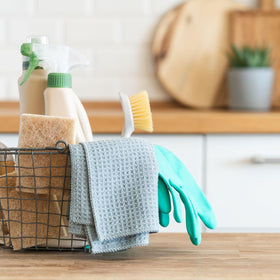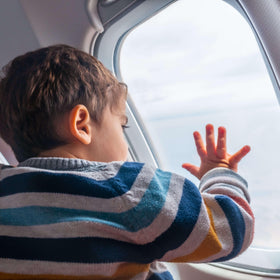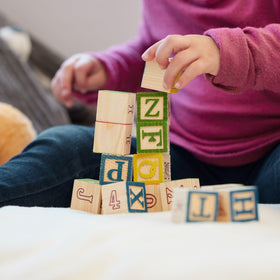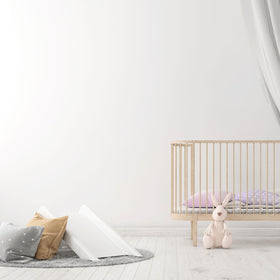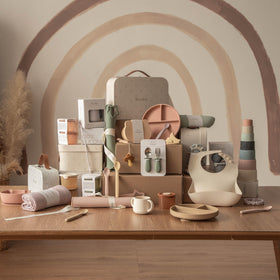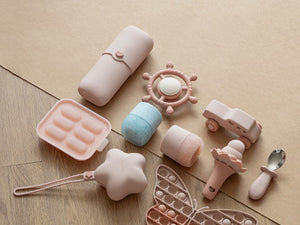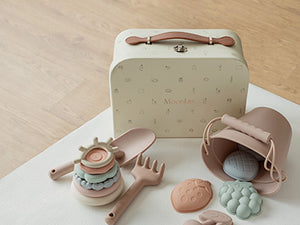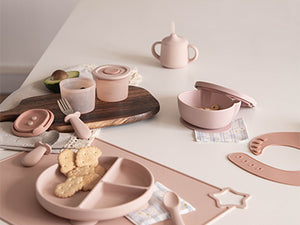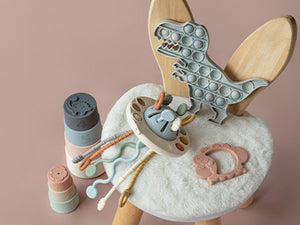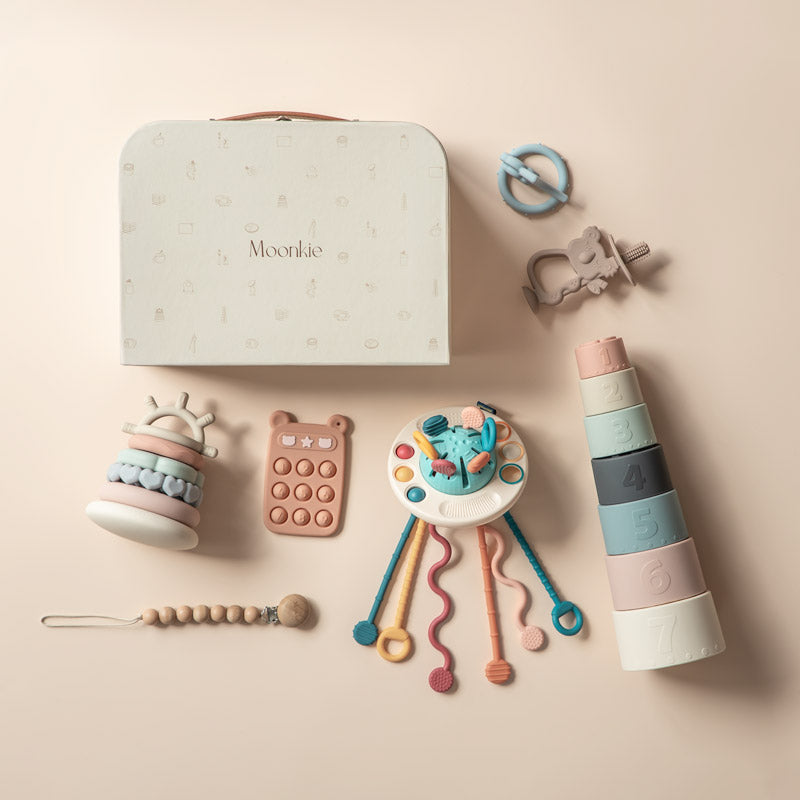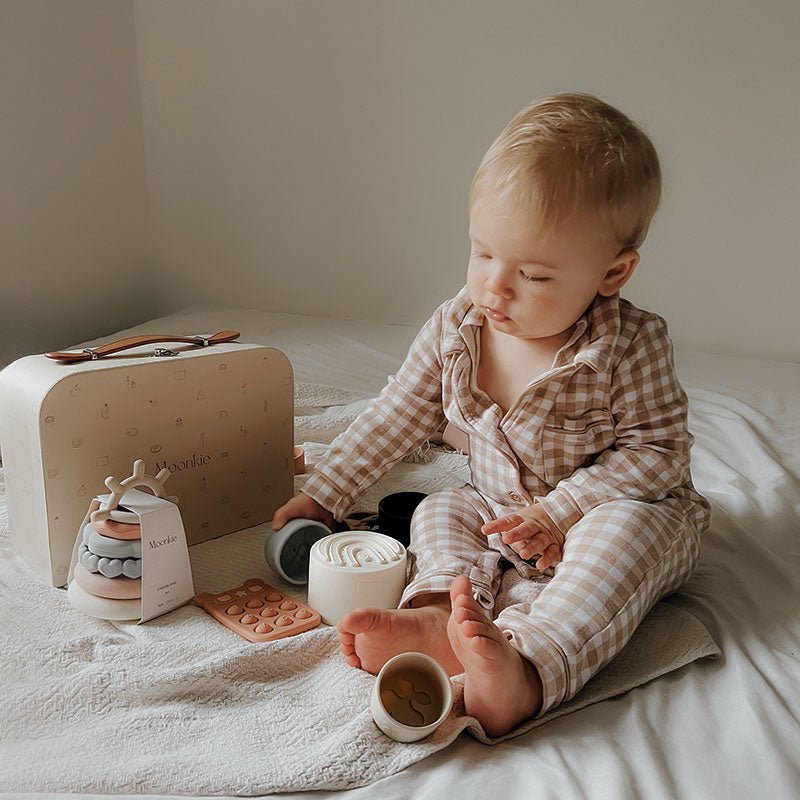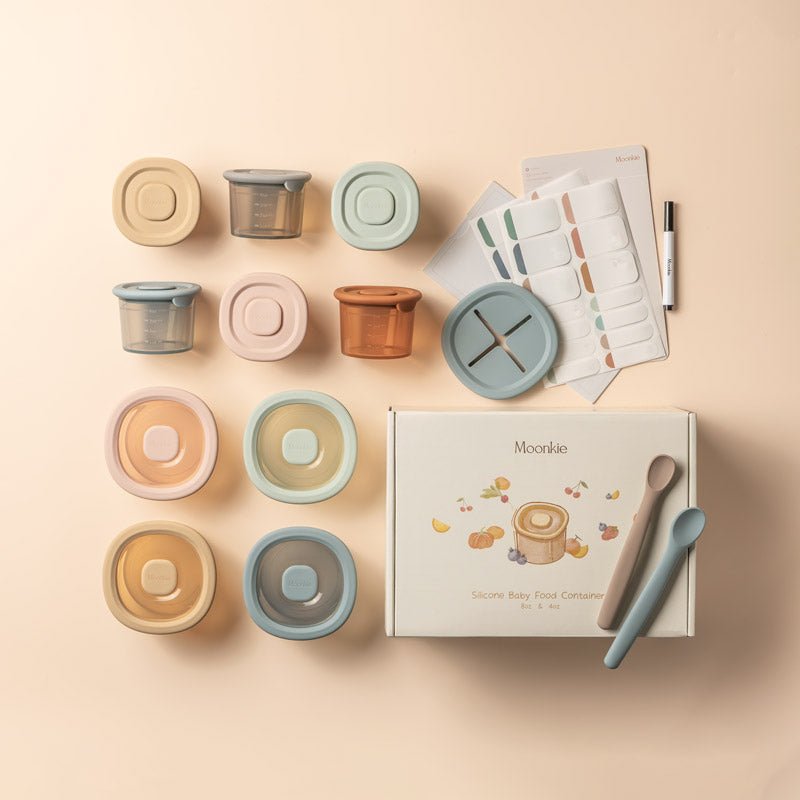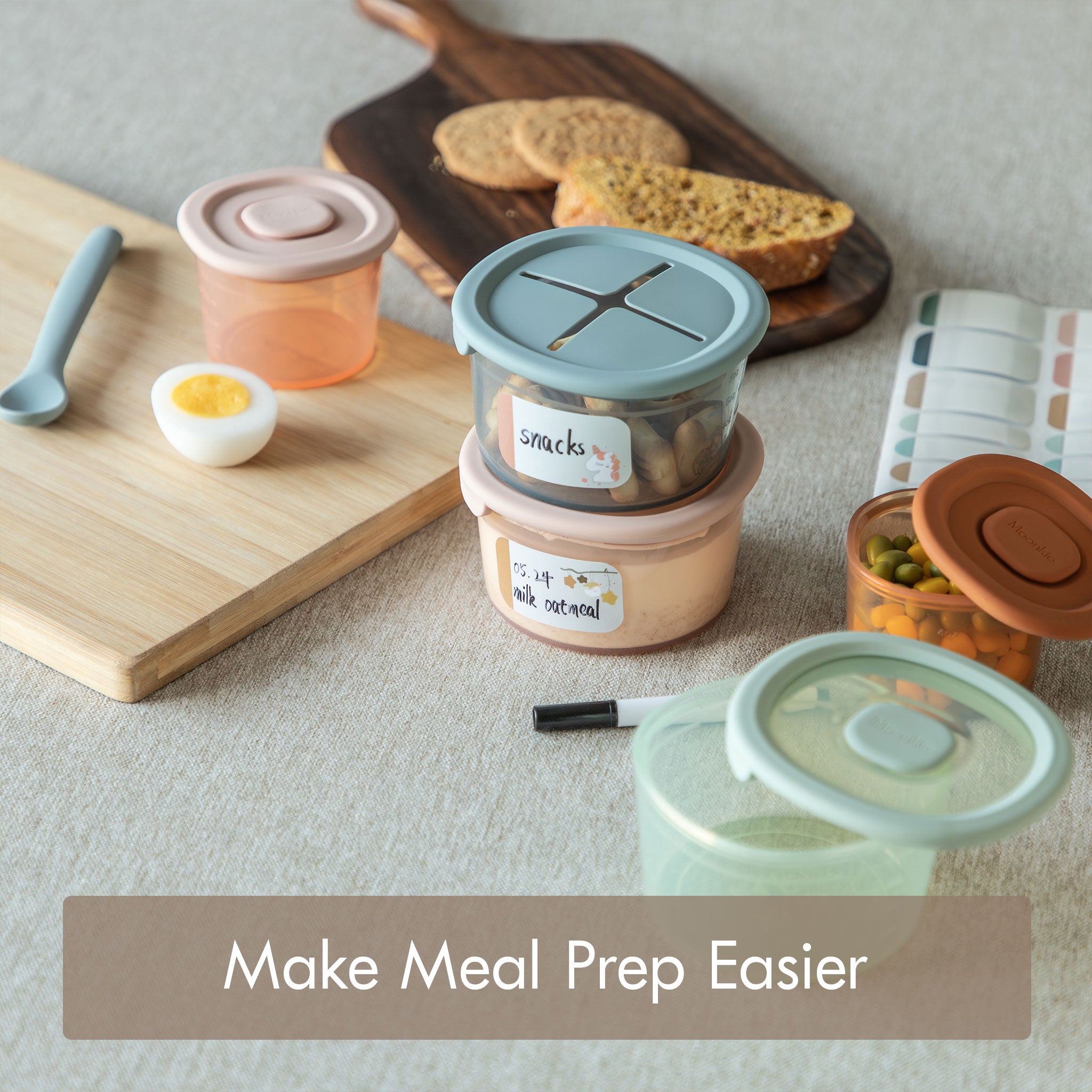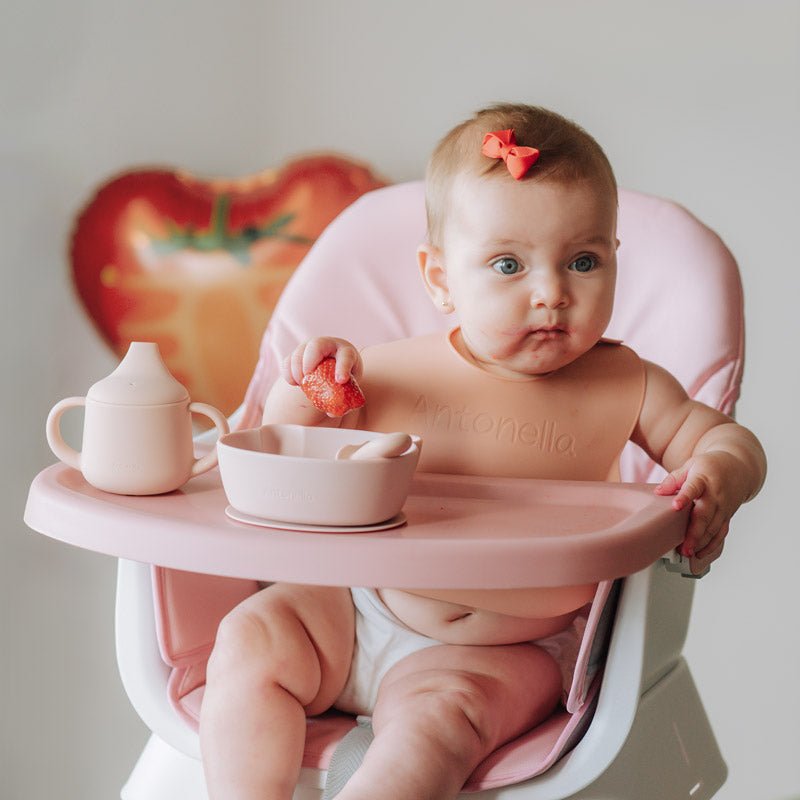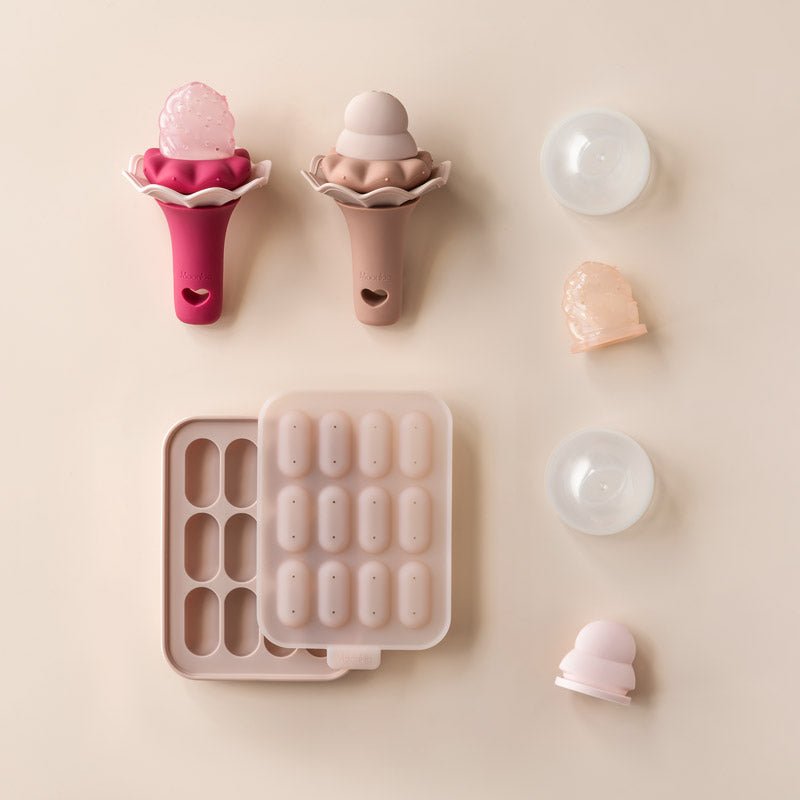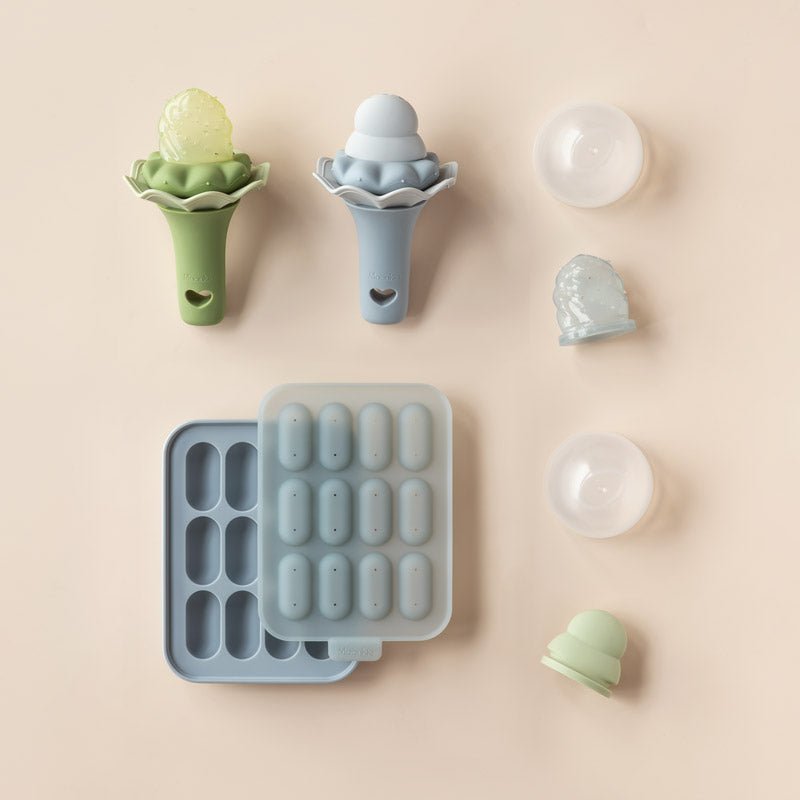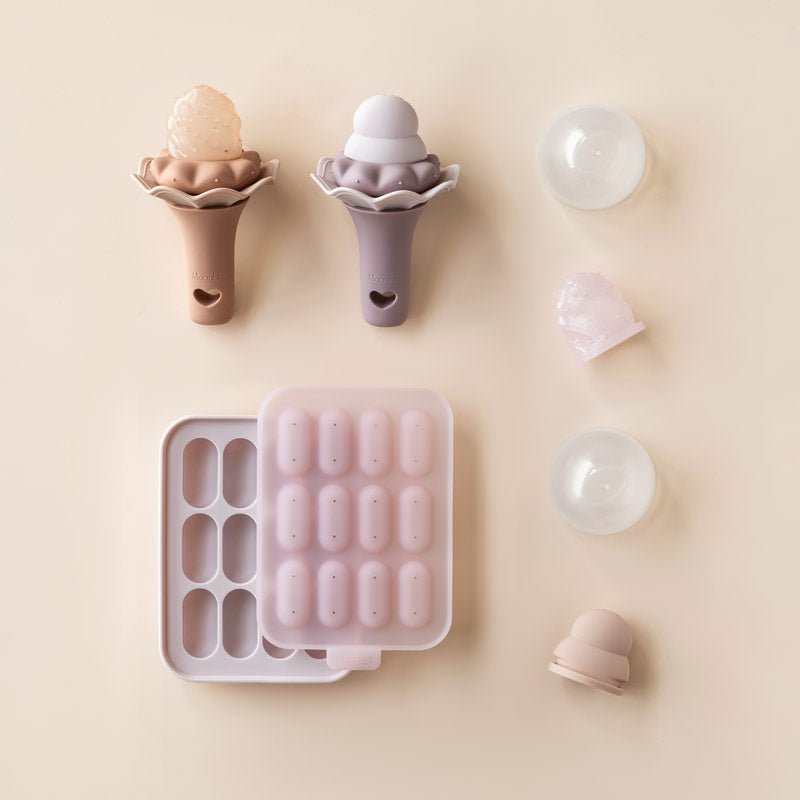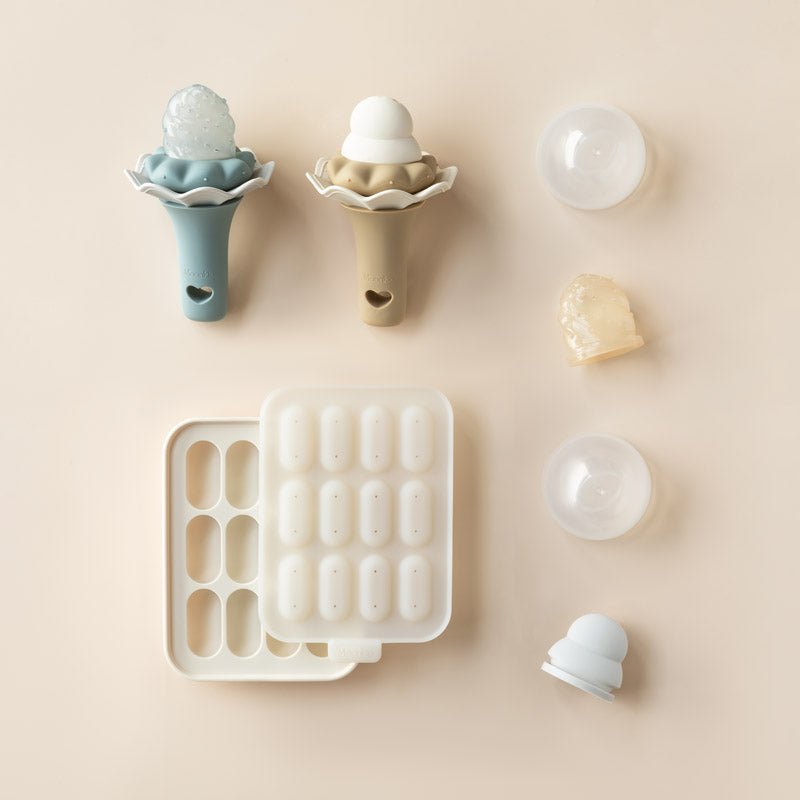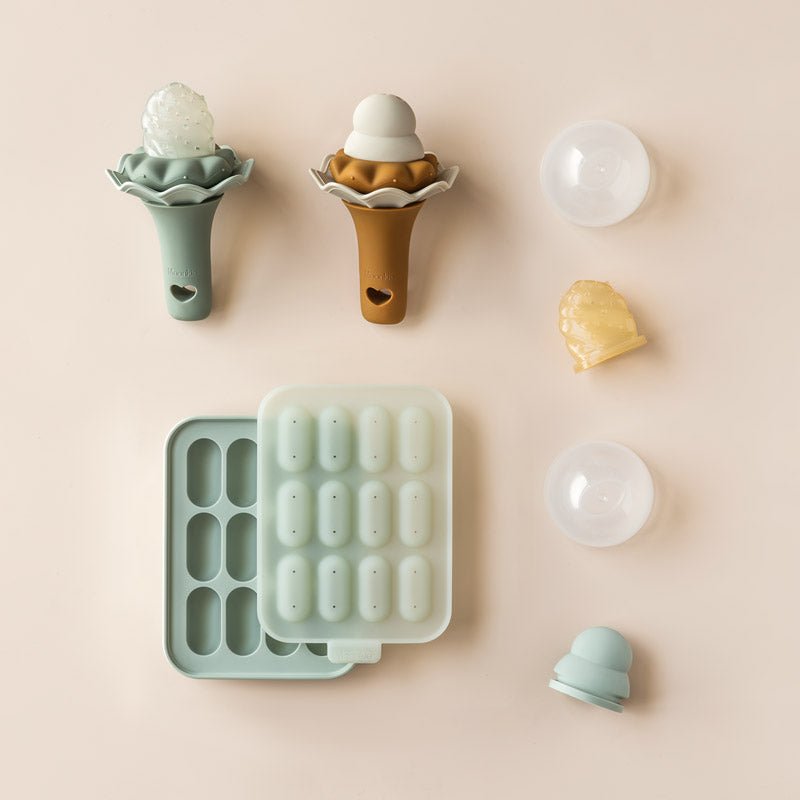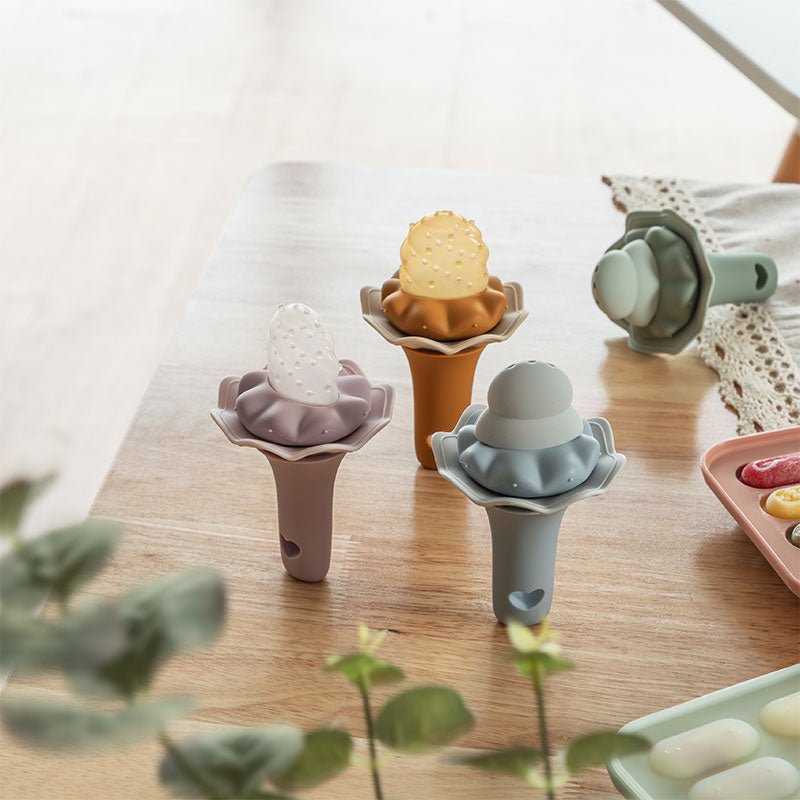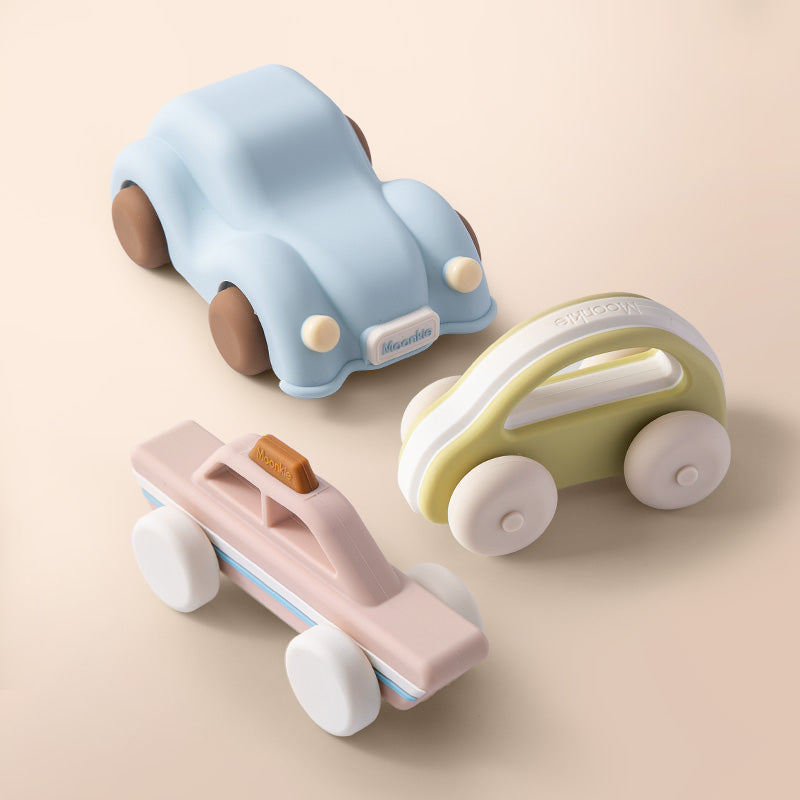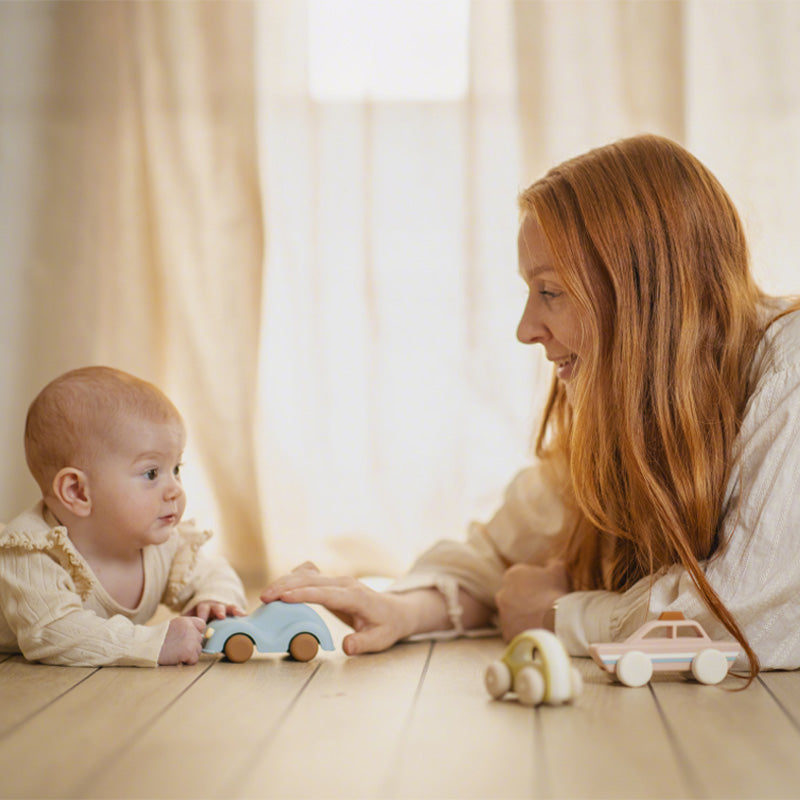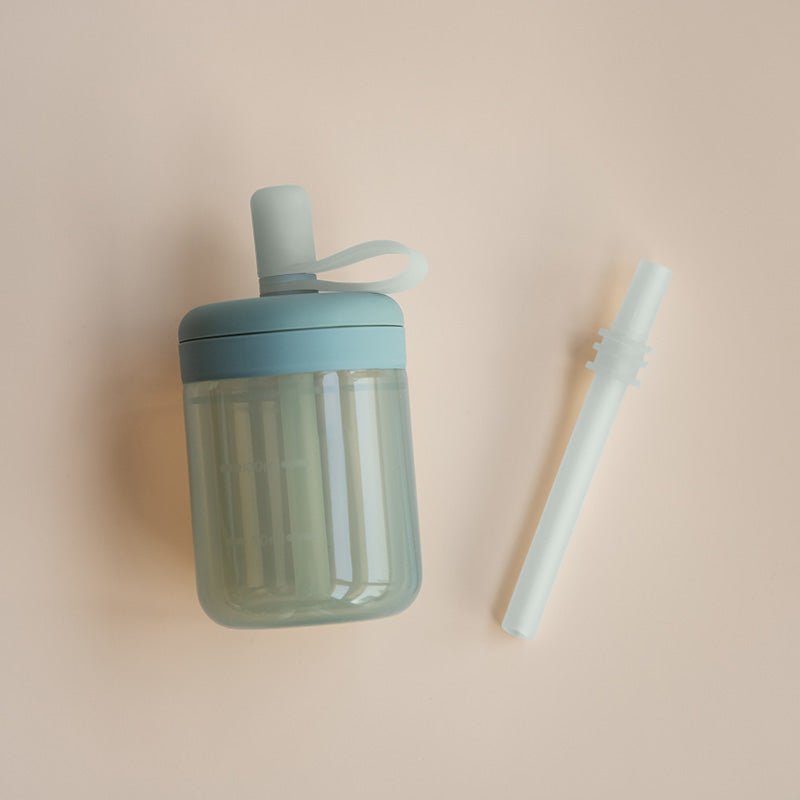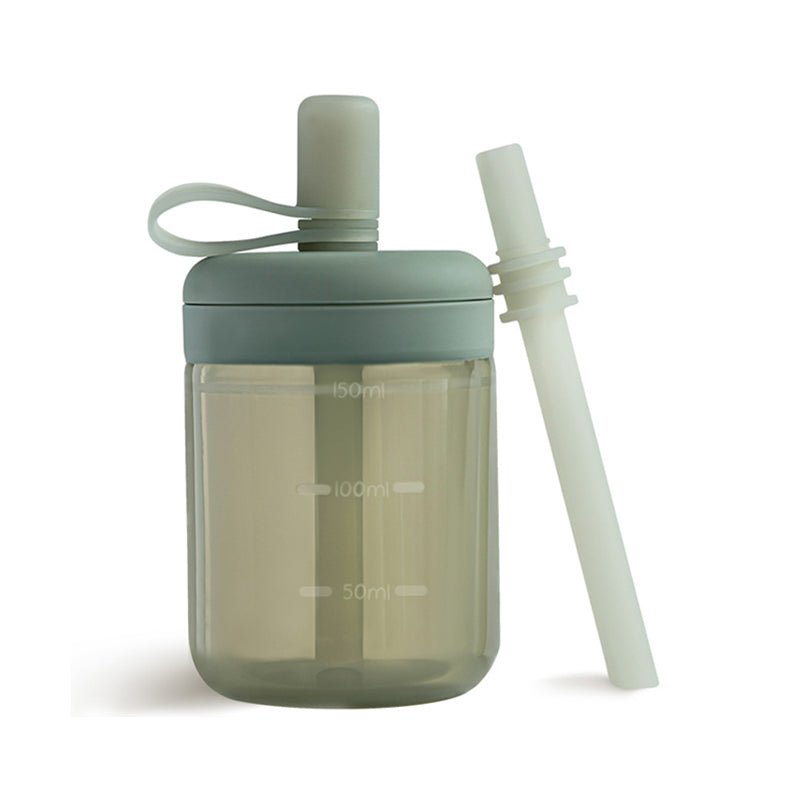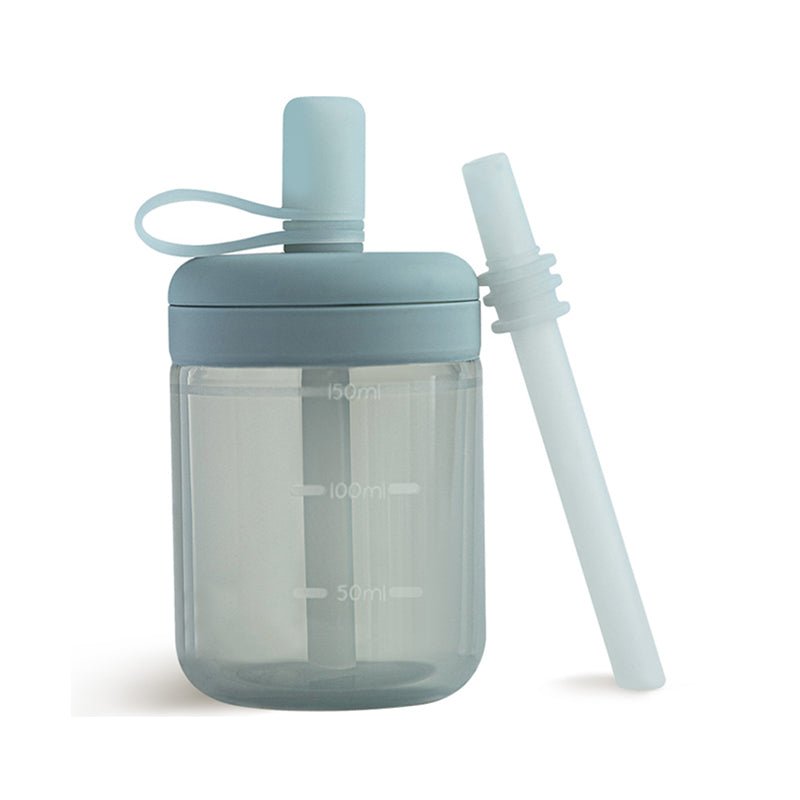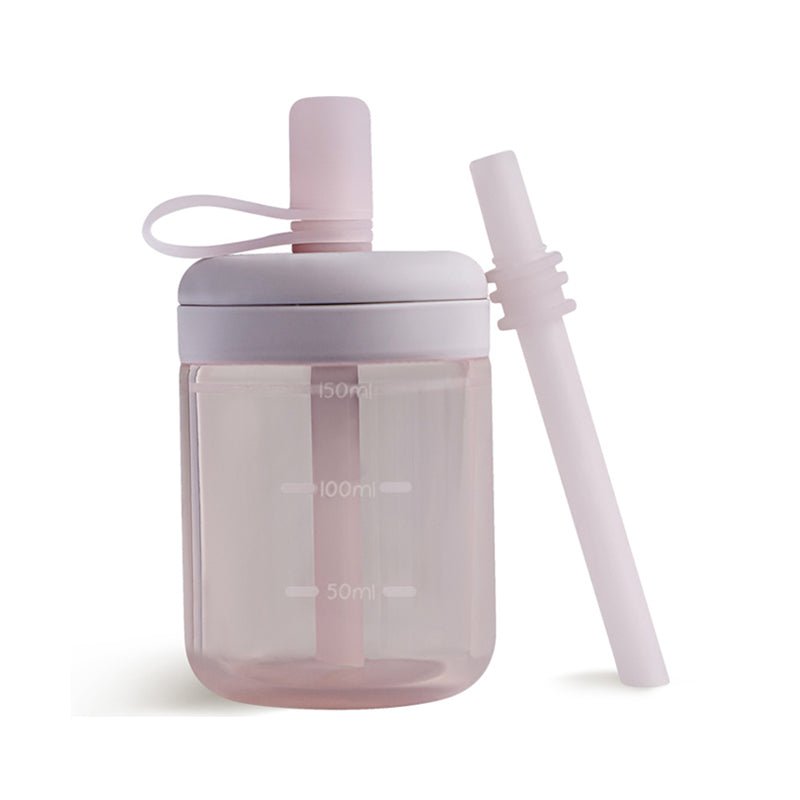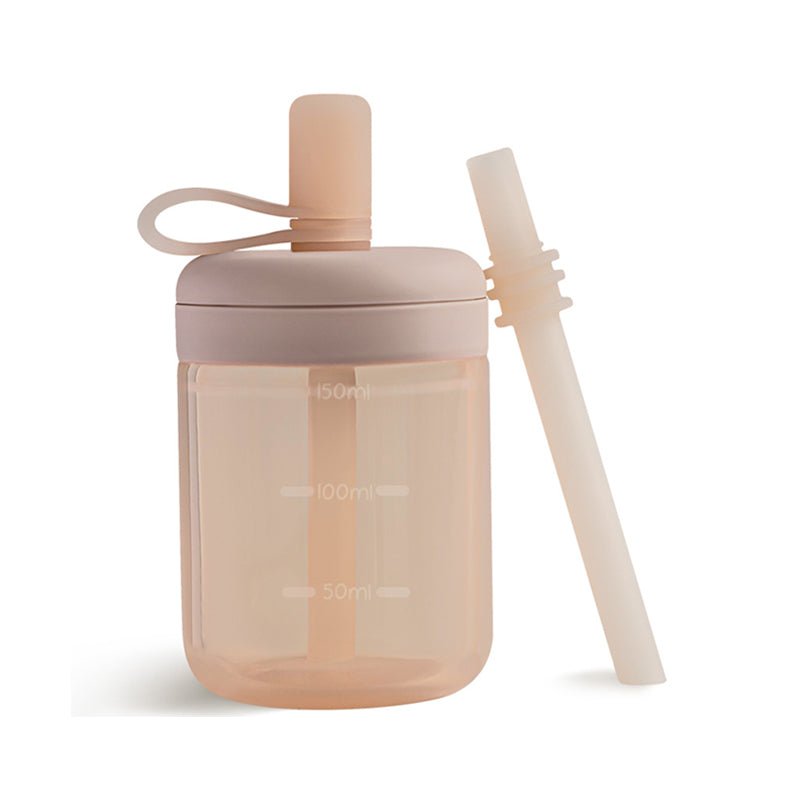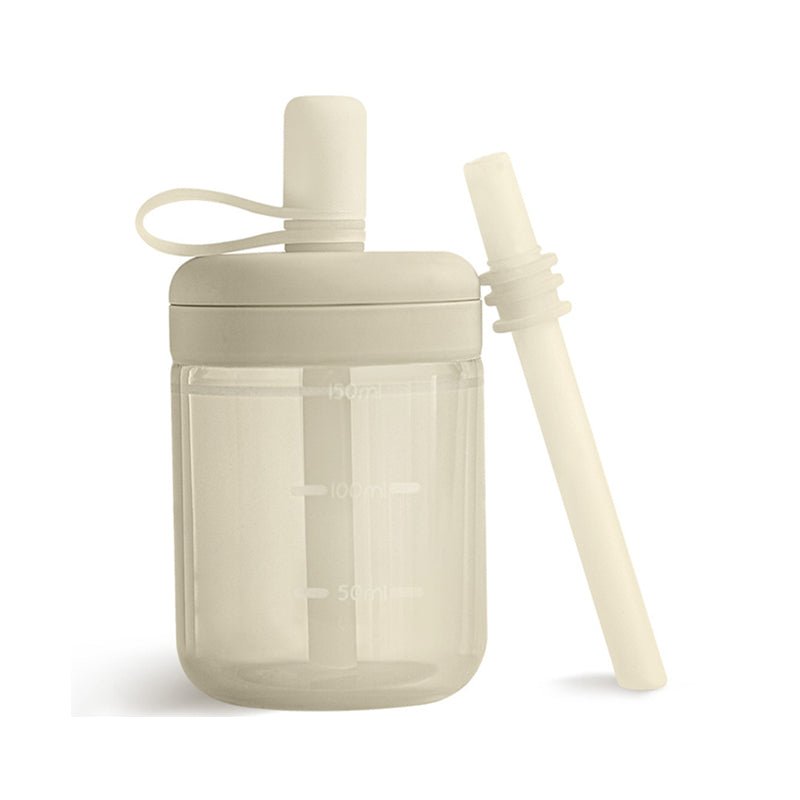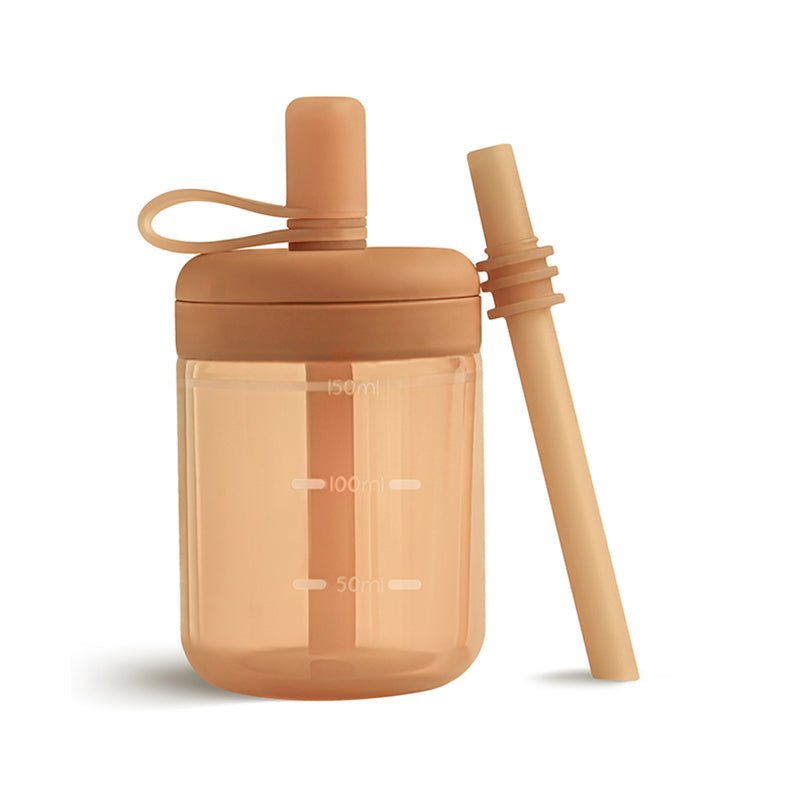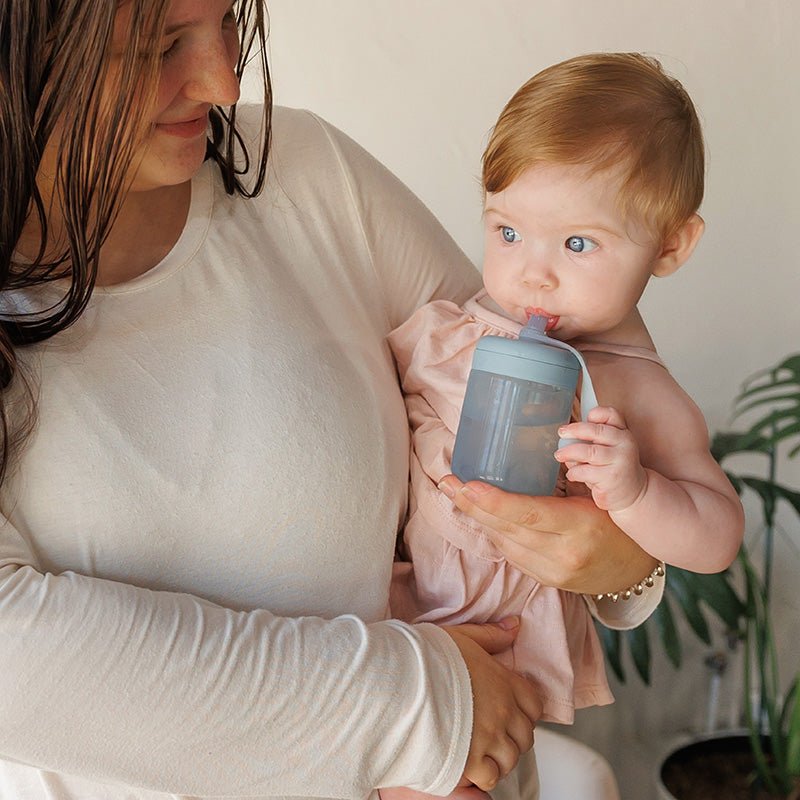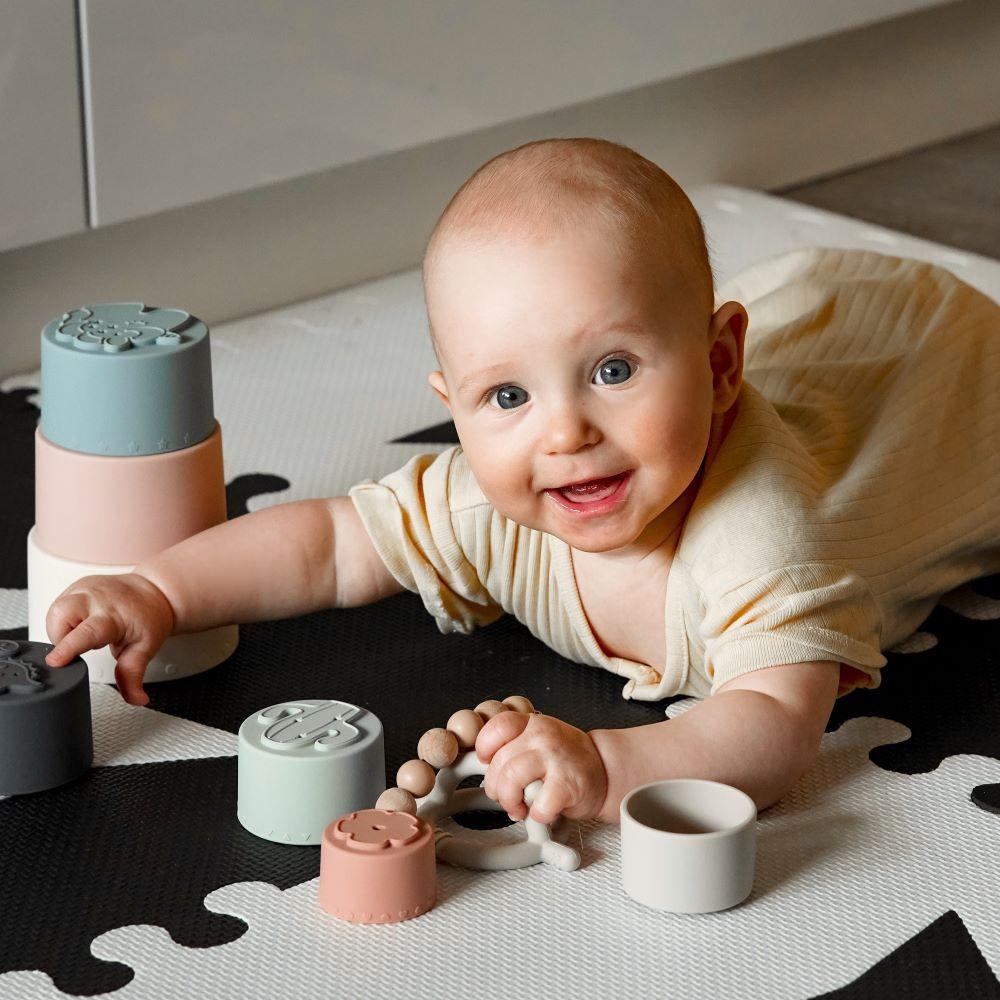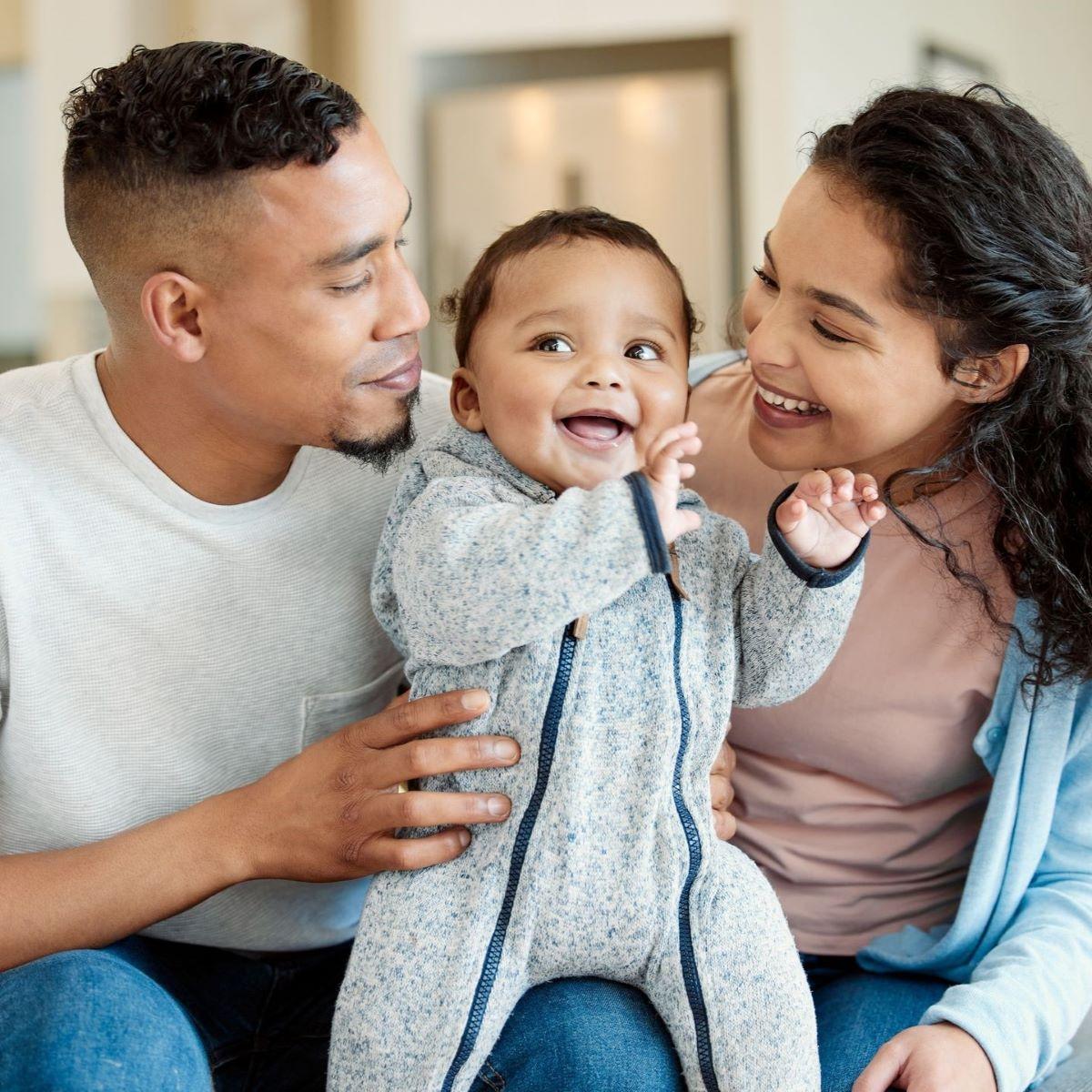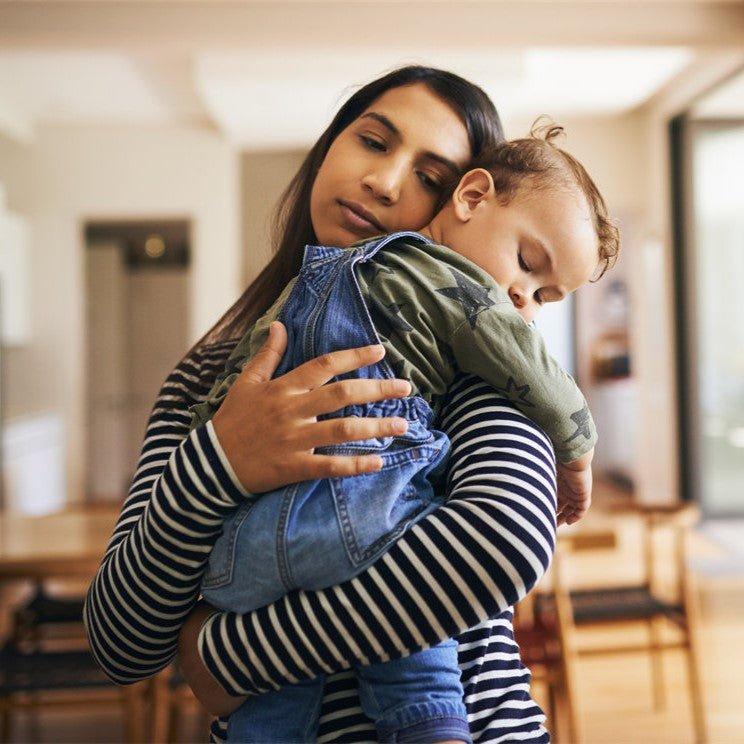If you have ever observed a newborn, you know that they don't do much with toys. Newborns typically cry, eat, sleep, poop, and stare off in the distance. So, does that mean newborns are too young for toys?
Although newborns do not actively play with toys, toys can still benefit their development. Simple sensory toys stimulate a newborn's senses of touch, sight, sound, and taste, which is crucial for exploring. However, focusing on interacting with your little one is more important than complex play.
In this article, we will delve into how toys benefit newborns (if at all), which toys to avoid, and a baby's development path so you can understand what your baby will be ready for when.
How Do Toys Benefit Newborns?
Toys benefit newborns primarily by stimulating their senses, which provides the sensory input they need to begin understanding the physical world around them. Newborns don't understand textures, temperatures, wetness, volume, or anything else fundamental to sensory experiences. 
However, toys are not the only items that inform a baby's senses. Anything that exists in physical form can stimulate those brand-new senses. In fact, my babies loved looking at fans, food on a colorful plate, shadows on the wall, my dog, and anything else fascinating enough to stand out yet slow enough to fixate on.
So, why are newborn toys a thing? Newborn toys offer a safe sensory exploration experience. As stimulating as silverware is for little hands, it is not exactly safe for a baby. Plants are tempting, but playing with them could harm little ones or make a big mess on the floor.
Newborns don't have control of their bodies yet; hand-eye coordination is not a thing. But it develops rapidly with practice.
So, if you don't provide safe items to explore, your newborn will entertain himself with his hands or whatever he can observe from his vantage point, but he won't get that extra nudge from practicing exploration with safe household items and toys.
From Comfort to Language Skills: The Many Benefits of Toys for Infants explains the specific ways toys benefit babies. This is a fantastic read for parents who want to make intentional toy choices from the start!
What Are the Best Toys for Newborns?
Contrary to common marketing, the best toys for newborns are simple, passive toys. Wooden blocks, silicone teething rings, cloth books, rattles, rubber balls, stuffed animals, and other classic baby toys are great options.
Toys for 0 to 3-month-olds need to be small enough to grasp but large enough to not be a swallowing hazard. They should also be easy to clean since your baby's immune system doesn't mature until between 2 and 3 months old (source).
Moreover, you want to find passive toys. Active toys are electric toys that make sounds or flashlights to entertain babies. Passive toys require the baby to intentionally do something with them, training their skills as they play.
Sensory Stimulation
Sensory toys stimulate one or two of the five senses at a time. So, instead of one toy that flashes lights, plays music, and has several different toys dangling from straps overhead, sensory toys are "boringly interesting."

The genius behind simple sensory toys is that they sit there until the baby does something with them. Then, the baby is rewarded with a sound, texture, fascinating reflection, or some other sensory engagement. It doesn't take long for the baby to realize that he must move the toy again to get the same fascinating result.
Learning to move the toys is key. Sensory toys encourage babies to develop their hand-eye coordination, fine and gross motor skills, and those all-important cognitive skills through handling and play.
However, the sensory toys need to be age-appropriate. For instance, toys that are plenty fascinating to a newborn will likely do little to engage a one-year-old. Likewise, toys that a one-year-old would enjoy are probably too complex for a newborn.
Here are a few examples of age-appropriate sensory toys for each age:
0-3 months: mobile, soft rings, textured rug
3-6 months: soft blocks, cloth books, play mats
6-9 months: stacking cups, teething rings, wooden blocks
9-12 months: shape sorters, bead mazes, busy boards
From Teething to Tummy Time: The Top Sensory Toys for Every Stage of Babyhood lists more age-appropriate sensory toy ideas.
Interaction
Though sensory toys provide safe and age-appropriate learning experiences for newborns, they are less effective than time spent interacting with your little one.
The time parents or caregivers spend actively playing and communicating with their newborn seems to set the foundation for healthy cognitive, linguistic, emotional, and social development (source).
Newborns do a lot of watching, but they see things differently than you. The womb is dark, so it takes time to adjust those eyes! Here is a brief chart on what your baby can see (source):
Age Range |
Ability |
Birth to 1 month |
|
2 to 3 months |
|
4 months |
|
6 months |
|
7 to 12 months |
|
As you can see, your little one is intensely fixated on you in those first months because you are the one she sees! She wants to be held close to feel loved and secure, and by Months 2 and 3, she recognizes and remembers your face—just in time to start mimicking your facial expressions with that sweet, toothless smile!
You could invest in the most expensive and well-tested newborn toys on the market, but they do nothing compared to the time spent with you. Learn more about how your bond aids your baby's development in The Science Behind Bonding with Your Baby: A Comprehensive Guide.
Are Montessori Toys Any Good for My Newborn?
Montessori toys are one of the biggest buzzwords in the baby product market for good reason. The Montessori Method is a child-led education style designed by a remarkable woman who observed how children naturally explore, learn, and grow.
Montessori toys are not central to the method since Montessori education focuses on giving children real tools, materials, and items to accomplish tasks.
However, simple toys made from natural materials (wood, natural rubber, cotton, etc.) can safely introduce your little one to textures, weights, and real-world materials.
In essence, Montessori toys for babies often land in the sensory toy category, so the simplest ones are typically fantastic for newborns in the "watch and learn" mode.
Unfortunately, not all toys labeled "Montessori" are actually designed with Montessori principles in mind. Read all about the Montessori Method, where it comes from, and how its "child-led" learning works in The Montessori Philosophy for Parents: Why It Works and How to Make It Work for You.
If you are already familiar with the Montessori Method but have some questions about differentiating quality toys from marketing messages, check out 15 Questions First-time Parents Ask About Montessori Toys.
What Toys Should I Avoid Giving My Newborn?
Avoid giving your newborn toys that offer an overwhelming amount of stimulation. Lights, music, and automated movement are fun for older kids, but newborns don't need anything like that yet. They simply need to watch and observe slowly and repeatedly.
Overwhelming your newborn with lots of sensory input could stress them out. Overstimulated newborns or babies may (source):
seem upset
turn head away
move jerkily (more than normal)
be irritable or tired
clench fists, wave arms, and kick more than usual
cry and be difficult to console
Giving your newborn too many toys at once can also be overstimulating. Newborns really do not need much to engage their senses.
A newborn sleeps between 16 and 17 hours a day (source). Most of his waking hours are spent being fed, changed, and soothed to sleep, which is stimulating! So, spend any observation and interaction time intentionally.
Other toys you should probably avoid giving your newborn include anything difficult to clean, with tiny parts that come off, or small enough to swallow.
Screens and Newborns
More than a few parents pass the nighttime fussies in front of a screen. I get it! Your hands are full, and your baby may like to fixate on the screen. The problem is that screens have no known benefits for infants and several potential risks.
Screen time is associated with health and developmental concerns for young, developing minds and bodies, including possible links to obesity, less sleep, and delays in cognitive, linguistic, social, and emotional development (source).
So, the American Academy of Pediatrics recommends against any screen time for babies and toddlers under 24 months old. Unless a person talks to and actively interacts with the little one through the screen, nothing useful is gained, and some harm could potentially be done (source).
Infant Development
So, why do toys, screen time, and plenty of interactions with loving caregivers matter? Because a little one's brain creates 1 million new neural connections every second (source)! 
Everything your little one is absorbing in those first three years (especially the first year) is laying the foundation for her lifelong behavior, learning, and mental health (source).
Here are a few things to understand about your infant's development.
1. Babies Are Born Able to Learn
Babies start learning as soon as they are born and retain the information they learn (source). So, as much as it may seem like your newborn is sitting there doing nothing, she is actually developing rapidly, soaking in everything her senses are sensing to process and plug into her understanding of the world.
The higher the quality of the interactions, the better connection and understanding are built.
Your interactions with your newborn as you care for her will be enough initially, but she will need more to explore as her sensory skills improve. So, if you don't provide your baby with safe objects and toys to explore, she will find things herself as soon as she is able!
2. Babies and Kids Have to Play
Playing is a child's profession! It's not just for having fun; play is fundamental to a child's brain development. Even cooler: this job begins at birth with observation!
Play pushes little ones to develop their fine and gross motor skills, hand-eye coordination, problem-solving skills, creativity, imagination, language, and so much more (source).
3. Sleep Matters
Babies have to sleep; the younger they are, the more sleep they need. Newborns need roughly 16 to 17 hours of sleep in a 24-hour period. By 6-months-old, drops back to somewhere between 12 and 16 hours.
But why is sleep so critical for babies? Sleep supports memory processing. During sleep, brain waves go through several cycles of speeding up and slowing down. A lot happens during each phase, but babies (and adults) consolidate memories during the slow wave phase (source).
In plain English, sleep is essential for your little one to remember what he learned!
4. Nutrition Matters
Food matters, but you cannot eat any type of food and expect quality results. Quality food generates quality results, just like how putting good, clean fuel into your car is better than old, unfiltered fuel. Quality nutrition matters even more to your little one as she develops rapidly.
Breast milk is best during the first six months, but formula works if breastfeeding is not an option. After that, you can begin feeding your baby solid food in the form of well-cooked, soft foods and purees.
For pointers on that, check out Introducing Baby to Solid Food: When to Start, What to Try, and How to Begin.
5. You Matter to Your Baby's Development
Your love, attention, responsiveness, guidance, and joy impact your little one's development. The bond you nurture with your baby will help him eventually grow into a healthy, happy, well-adjusted adult.
But to build that bond well, you must also take care of yourself. Learn more about the impact of your health on your baby's health in How Much Does Taking Care of Myself Help My Baby?
6. Every Child Runs Their Own Race
One of the most amusing lessons we learn as parents is that every child marches to the beat of his own drum. You can give your little one brilliantly designed, age-appropriate toys, educate them with the best curriculum, and provide all the love you can give, and your baby will still hum along in his own world.
What we do for our children matters: our provision, love, joy, food, schedule, and everything else. However, genetics and personality weigh in as well. Giving our children the best we can give is the parents' job. The rest is our joy to behold!
In a Nutshell
Simple sensory toys are beneficial for newborns to observe and begin reaching for because they are safe and not overstimulating. However, newborns don't need the toys as much as they need their parents' love, time, care, and affection. So, make the most of the time you have together!

